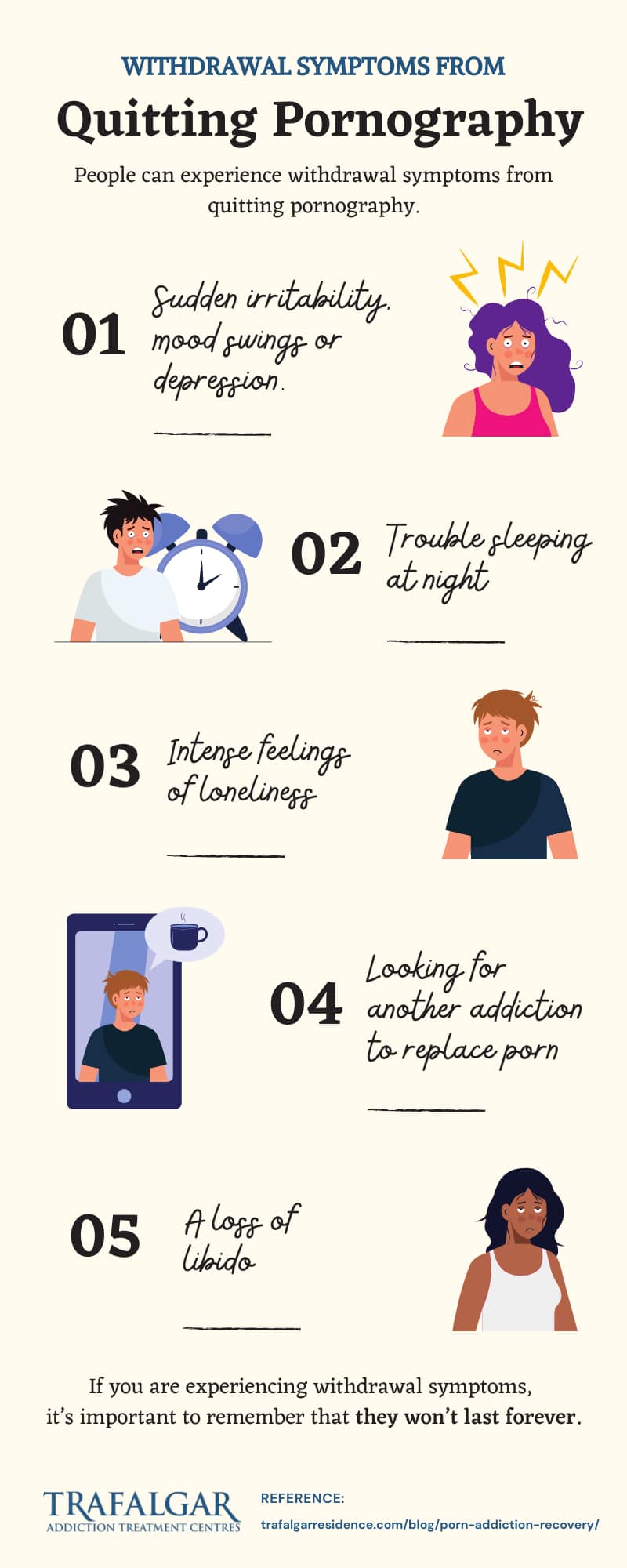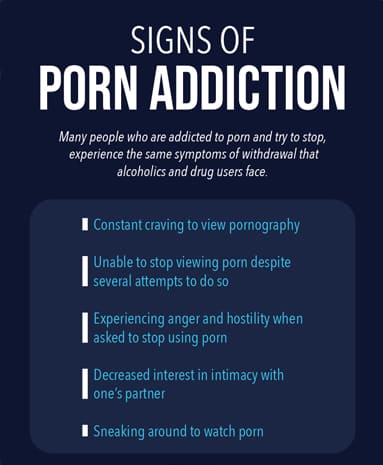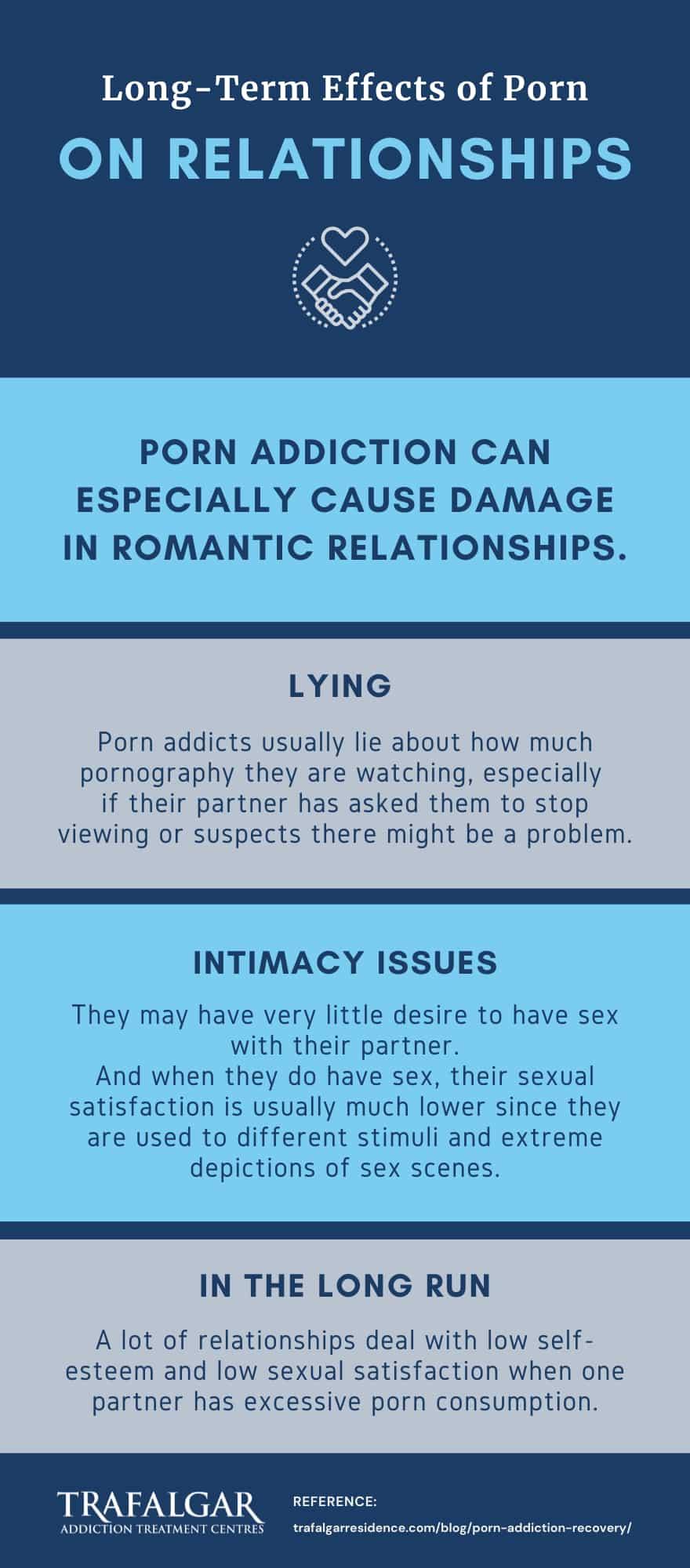Helping someone with a porn addiction can be a challenging and delicate task. Addiction is a complex issue, and it requires a compassionate approach to support and guide individuals on their path to recovery. In this blog post, we will explore effective ways to help someone with a porn addiction, based on factual information and expert advice. Whether you’re a concerned friend, partner, or family member, understanding how to approach the situation with kindness and empathy can make a significant difference in your recovery journey. Let’s dive in and discover the essential steps to provide the support they need.

Table of Contents
Introduction
Understanding the challenges of helping someone with a porn addiction
Helping someone with a porn addiction can be challenging and requires a compassionate and supportive approach:
- Understanding the challenges: Porn addiction is a complex issue that can have a significant impact on an individual’s mental, emotional, and physical well-being. It can also strain relationships and lead to feelings of guilt, shame, and isolation. Recognizing the challenges and complexities of addiction is essential to providing effective support.
- Approaching with empathy and understanding: It is crucial to approach the situation with empathy and without judgment. Understand that addiction is a complex issue and that the person struggling with addiction may be experiencing deep emotional pain. By showing empathy and understanding, you create a safe space for open communication and support.
- Identifying signs and symptoms: Educate yourself about the common signs and symptoms of porn addiction. This knowledge can help you identify when someone might be struggling and allow you to offer appropriate support and resources.
- Creating a safe and non-judgmental environment: Establishing an environment free from judgment and shame is critical. This environment enables open and honest communication and encourages the individual to seek help without fear of criticism or retribution.
- Involving professional help: In many cases, involving a professional counselor or therapist who specializes in addiction can be highly beneficial. These experts can provide valuable guidance, support, and therapeutic interventions that can aid in the recovery process.
- Finding resources and treatment options: Research and identify appropriate resources and treatment options for porn addiction. These may include support groups, therapy programs, and online resources that provide information and guidance for individuals and their loved ones.
- Establishing healthy boundaries: Setting healthy boundaries is important for both the individual struggling with addiction and for their loved ones. Boundaries help protect everyone involved and ensure that enabling behaviors are avoided. However, it’s crucial to maintain a balance between setting boundaries and offering support.
Remember, helping someone with a porn addiction is a journey that requires patience, understanding, and ongoing support.

The importance of approaching the situation with empathy and understanding
Approaching someone with a porn addiction can be a sensitive and delicate situation. It is important to approach the situation with empathy and understanding, as addiction is a complex and challenging issue. Here are key points to keep in mind when supporting someone with a porn addiction:
- Empathy: Show empathy towards the individual struggling with addiction, recognizing that addiction is not a moral failure but a complex issue that requires support and understanding.
- Non-judgmental Environment: Create a safe and non-judgmental environment where the person feels comfortable discussing their struggles and seeking help.
- Education: Educate yourself about porn addiction to better understand the challenges and impact it has on individuals and relationships. This will help you approach the situation with knowledge and compassion.
- Open Communication: Encourage open and honest communication with the person struggling with addiction, allowing them to express their challenges, fears, and aspirations.
- Professional Help: Consider involving a professional counselor or therapist who specializes in addiction to provide guidance and support for both the individual and their loved ones.
- Boundaries: Establish healthy boundaries and practice self-care to protect your own mental and emotional well-being while supporting someone with addiction. Remember that you cannot change someone, but you can be a source of support and encouragement.
Approaching the situation with empathy and understanding is crucial in helping someone with a porn addiction. It creates a safe space for open communication and sets the foundation for their recovery journey.

Recognizing the Signs of Porn Addiction
Identifying common signs and symptoms of porn addiction
Identifying common signs and symptoms of porn addiction is crucial in order to provide appropriate support and assistance to individuals struggling with this addiction. Some common signs and symptoms include:
- Increased usage: Individuals with a porn addiction may spend excessive amounts of time consuming pornographic materials, leading to neglect of other responsibilities and relationships.
- Failed attempts to quit: Despite wanting to stop or reduce their porn usage, individuals with an addiction may find it challenging to quit or control their behavior.
- Escalating behaviors: Over time, individuals may find that they need more explicit or intense material to achieve the same level of arousal, indicating an increasing tolerance.
- Social withdrawal: People struggling with porn addiction may withdraw from social activities, hobbies, and relationships in favor of spending more time with pornography.
- Mood swings and irritability: Addiction can cause mood swings, irritability, and difficulty concentrating, as individuals may become preoccupied with their addiction.
- Disturbed relationships: Porn addiction can strain relationships, leading to feelings of guilt, shame, and diminished intimacy with partners.
- Neglected responsibilities: Addiction can interfere with work, school, or personal responsibilities, leading to neglect and potential negative consequences.
- Financial problems: Individuals may spend excessive amounts of money on pornographic content, leading to financial difficulties.
It’s important to approach individuals struggling with porn addiction with empathy and understanding, providing support and encouragement as they navigate their journey towards recovery. Consulting a professional therapist or counselor who specializes in addiction can also be beneficial in providing guidance and personalized treatment options.

Understanding the impact of addiction on individuals and relationships
Understanding the impact of addiction on individuals and relationships is crucial when helping someone with a porn addiction. Addiction can have significant emotional, psychological, and relational effects, including:
- Decreased self-esteem and self-confidence: Porn addiction can lead to feelings of shame, guilt, and self-doubt, causing individuals to question their worth and capabilities.
- Relationship strain: Porn addiction can create distance and mistrust in relationships. The person struggling with addiction may neglect their partner’s needs, compare them to unrealistic standards portrayed in pornography, and engage in secretive behavior.
- Intimacy and sexual dysfunction: Excessive porn use can decrease interest in real-life sexual encounters, leading to erectile dysfunction, decreased libido, and difficulty forming intimate connections.
- Emotional withdrawal: Addiction can make individuals more focused on their addiction than on building emotional connections with their partner. This can result in less time spent together and decreased emotional intimacy.
- Impact on mental health: Porn addiction can exacerbate mental health issues such as anxiety, depression, and feelings of isolation. It can create a vicious cycle where addiction worsens mental health, and deteriorating mental health fuels the addiction.
When helping someone with a porn addiction, it is essential to approach them with empathy, understanding, and patience. Encouraging them to seek professional help, providing emotional support, and fostering open communication can aid in their recovery journey. [7][8]

Approaching the Situation with Compassion
The importance of creating a safe and non-judgmental environment
Creating a safe and non-judgmental environment is crucial when helping someone with a porn addiction. It is essential to approach the situation with empathy and understanding, allowing the person to feel comfortable and open about their struggles. Here are some key reasons why creating a safe and non-judgmental environment is essential:
- Trust and openness: By creating a safe space, the person struggling with addiction can feel secure in sharing their thoughts, feelings, and experiences without fear of judgment or condemnation. This trust and openness are crucial for effective communication and building a supportive relationship.
- Reduced shame and stigma: Addiction is often accompanied by feelings of shame and stigma, which can hinder the recovery process. A safe and non-judgmental environment helps to alleviate these negative emotions, allowing the person to focus on their healing journey without being burdened by guilt or fear of rejection.
- Encouraging honesty: In order to address and overcome porn addiction, honesty is essential. By creating a safe and non-judgmental environment, you are encouraging the person to be honest about their struggles, triggers, and relapses. This honesty is a crucial step towards recovery and growth.
- Building a support network: A safe and non-judgmental environment allows for the development of a strong support network, which is vital in the recovery process. When individuals feel safe and supported, they are more likely to seek help from professionals or join support groups.
By prioritizing the creation of a safe and non-judgmental environment, you can significantly increase the chances of successful intervention and support for someone struggling with a porn addiction.

Dos and Don’ts of communicating with someone struggling with addiction
When communicating with someone struggling with addiction, it’s important to approach the situation with empathy, understanding, and support. Here are some vital dos and don’ts to keep in mind:
Dos:
- Approach the person with kindness, compassion, and non-judgment.
- Listen actively and validate their feelings and experiences.
- Offer support and encouragement throughout their recovery journey.
- Educate yourself about addiction and the resources available for help.
- Be patient and understanding, as overcoming addiction is a challenging process.
- Encourage open and honest communication, creating a safe space for them to express themselves.
- Respect their boundaries and autonomy, allowing them to make their own decisions.
Don’ts:
- Don’t shame, blame, or criticize the person for their addiction.
- Avoid enabling their addictive behaviors or making excuses for them.
- Refrain from giving ultimatums or issuing threats, as it can damage trust and hinder recovery.
- Don’t ignore or dismiss their struggles; acknowledge their pain and offer support.
- Avoid talking about their addiction with other people without their permission.
- Refrain from responding with anger or frustration; instead, maintain a calm and understanding demeanor.
By following these dos and avoiding the don’ts, you can establish a supportive and constructive relationship with someone struggling with addiction, encouraging their recovery process. [11][12]

Seeking Professional Help
The benefits of involving a professional counselor or therapist
Involving a professional counselor or therapist can be incredibly beneficial when helping someone with a porn addiction. These professionals have the training and experience to provide the necessary support and guidance for individuals struggling with addiction. Here are some benefits of involving a professional counselor or therapist:
- Expertise: Counselors and therapists specialize in addiction and mental health issues, including pornography addiction. They have a deep understanding of the challenges and complexities associated with this addiction and can provide targeted interventions and strategies.
- Non-judgmental environment: Professional counselors and therapists create a safe and non-judgmental space for individuals to discuss their addiction. This environment encourages open and honest communication, which is crucial for the recovery process.
- Individualized treatment: Every individual’s journey with addiction is unique, and professional counselors and therapists tailor their treatment approaches to meet the specific needs of each person. They develop personalized treatment plans that address the root causes of the addiction and provide effective coping mechanisms.
- Emotional support: Porn addiction can take a toll on an individual’s mental and emotional well-being. Professional counselors and therapists offer emotional support throughout the recovery journey, providing a source of comfort and guidance.
- Accountability: Counselors and therapists help individuals set goals and hold them accountable for their recovery efforts. They provide ongoing support, encouragement, and guidance to help individuals stay on track and overcome challenges.
- Referrals: If additional support or resources are needed, professional counselors and therapists can provide referrals to other professionals or support groups specializing in pornography addiction.
Remember, involving a professional counselor or therapist is just one aspect of the support system needed to help someone with a porn addiction. It’s important to involve loved ones, establish healthy boundaries, and practice self-care throughout the process.

Finding the right resources and treatment options for porn addiction
Finding the right resources and treatment options for porn addiction is crucial in helping someone overcome their addiction and achieve recovery. Here are some key considerations:
- Professional help: In many cases, professional counseling or therapy is necessary to address the underlying issues contributing to the addiction. A licensed therapist or counselor who specializes in addiction can provide guidance, support, and evidence-based treatment strategies.
- Support groups: Support groups, such as Sex Addicts Anonymous (SAA) or SMART Recovery, offer a safe and non-judgmental environment for individuals to share their experiences, gain support, and learn coping strategies from others who have gone through similar challenges.
- Online resources: There are numerous online resources available that provide information, resources, and support for individuals struggling with porn addiction. Websites like Fight the New Drug and Covenant Eyes offer educational materials, self-assessments, and tools for accountability.
- Apps and filters: Utilizing apps and filters on devices can help individuals limit access to explicit content and create a digital barrier to prevent relapse. Software like Covenant Eyes, Net Nanny, and Qustodio allow users to block or restrict access to pornography.
- Self-help books: There are various self-help books available that provide guidance and strategies for overcoming porn addiction. Some recommended titles include “Breaking the Cycle: Free Yourself from Sex Addiction, Porn Obsession, and Shame” by George Collins and “Out of the Shadows: Understanding Sexual Addiction” by Patrick Carnes.
Remember, each individual’s journey to recovery is unique, and it is important to find the right combination of resources and support tailored to their specific needs.

Supporting the Recovery Process
The role of loved ones in supporting and encouraging recovery
The role of loved ones in supporting and encouraging recovery from a porn addiction is crucial. Here are some ways that loved ones can provide support:
- Open and non-judgmental communication: Creating an environment where the individual feels safe and supported is essential. Encourage open and honest discussions about their struggles, goals, and progress.
- Emotional support: Offer empathy, understanding, and encouragement throughout the recovery journey. Let the person know that they are not alone and that you believe in their ability to overcome the addiction.
- Educate yourself: Learn about addiction, its impact, and available resources. This knowledge will help you better understand what the person is going through and guide you in providing appropriate support.
- Encourage professional help: A trained counselor or therapist can play a significant role in the recovery process. Encourage the person to seek professional help and offer to accompany them to therapy sessions if they feel comfortable.
- Establish healthy boundaries: Setting boundaries is crucial for both the loved one and the person struggling with addiction. Boundaries help maintain a sense of safety and accountability, while also protecting the well-being of everyone involved.
- Practice self-care: Supporting someone with addiction can be emotionally demanding. Make sure to prioritize your own mental and emotional well-being. Seek support from friends, family, or support groups to help you navigate the challenges and maintain your own well-being.
Remember, the journey to recovery is unique for each individual. By providing love, understanding, and support, you can play a vital role in helping your loved one overcome their porn addiction.

Establishing healthy boundaries and practicing self-care
Establishing healthy boundaries and practicing self-care are essential when supporting someone with a porn addiction. It is important to prioritize your own well-being while also being there for your loved one. Here are some tips for establishing healthy boundaries and practicing self-care:
- Set clear boundaries: Determine what you are comfortable with and communicate your boundaries to the person struggling with addiction. This may include limiting exposure to triggering content or establishing guidelines for communication.
- Take care of yourself: Make self-care a priority by engaging in activities that bring you joy and relaxation. This can include exercise, hobbies, spending time with loved ones, or seeking support from a therapist or support group.
- Practice open communication: Foster an environment of open and honest communication with the person struggling with addiction. Encourage them to share their feelings and experiences while also expressing your own concerns and emotions.
- Educate yourself: Learn about addiction and porn addiction specifically to better understand what your loved one is going through. This knowledge can help you provide informed support and empathy.
- Seek support: Reach out to support networks such as friends, family, or support groups for guidance and validation. Having a strong support system can alleviate feelings of isolation and provide a safe space to express your own emotions.
By establishing healthy boundaries and prioritizing self-care, you can better support your loved one while also safeguarding your mental and emotional well-being. Remember, it is not your responsibility to fix or cure their addiction, but rather to provide support, empathy, and encouragement throughout their recovery journey.

Building Trust and Open Communication
The importance of trust in the recovery process
Trust is an essential component of the recovery process when helping someone with a porn addiction. Rebuilding trust can be a challenging and lengthy journey, but it is crucial for the healing and strengthening of relationships. Here are some key points to consider regarding the importance of trust in the recovery process:
- Trust is the foundation: Trust forms the bedrock of any healthy relationship. By working towards rebuilding trust, both the individual struggling with addiction and their loved ones can create a solid foundation for their future together.
- Trust fosters open communication: Trust allows for open and honest communication between all parties involved. It creates an environment where individuals feel safe to express their needs, concerns, and emotions, which is crucial for effective recovery.
- Trust promotes vulnerability and empathy: When trust is established, individuals can be vulnerable with each other. This vulnerability encourages empathy and understanding, facilitating a deeper connection and a stronger support system.
- Trust signifies commitment: Rebuilding trust is a commitment from both sides. It shows that the person struggling with addiction is dedicated to their recovery, while loved ones demonstrate their commitment to supporting and encouraging the journey.
- Trust restores a sense of safety: Trust provides a sense of safety and security within a relationship. It allows individuals to feel confident that their needs will be respected and that they can depend on each other.
- Trust enables forgiveness: Trust is closely linked to forgiveness. Rebuilding trust involves acknowledging past actions and working towards forgiveness, which is integral to the healing process.
- Trust indicates progress: As trust is rebuilt, it signifies progress in the recovery journey. It serves as a tangible marker of growth and improvement in the relationship and individual’s healing process.
Throughout the recovery process, it is important to prioritize trust-building efforts, which may involve open and honest communication, setting and respecting boundaries, seeking professional help, and consistently demonstrating commitment to recovery.

Encouraging open and honest communication with the person struggling with addiction
Encouraging open and honest communication is essential when supporting someone struggling with a porn addiction. Here are some tips to promote healthy communication:
- Create a safe and non-judgmental environment: Let the person know that you are there to support them and that they can share their thoughts and feelings without fear of being judged.
- Use active listening skills: Pay attention to what the person is saying and respond with empathy and understanding. Reflective listening, where you paraphrase their words to show comprehension, can help them feel heard and validated.
- Avoid blame and criticism: Focus on the addiction as a problem to be addressed rather than blaming the person. Remember that addiction is a complex issue and is not a reflection of their character.
- Be patient and allow space for self-reflection: Recovery is a process, and change takes time. Encourage the person to explore their motivations for change and support their progress at their own pace.
- Offer support and encouragement: Let the person know that you believe in their ability to overcome their addiction. Provide resources and suggest professional help if needed.
- Maintain confidentiality: Respect the person’s privacy and do not share their struggles with others without their consent.
By promoting open and honest communication, you can create a supportive environment that encourages the person to seek help and work towards recovery.

Providing Emotional Support
The power of empathy and validation in supporting someone with addiction
The power of empathy and validation cannot be underestimated when it comes to supporting someone with addiction, including a porn addiction. Here are some reasons why empathy and validation are essential:
- Understanding their perspective: Empathy allows you to put yourself in their shoes and try to understand what they are going through. It helps you see the situation from their point of view, which can lead to more productive and compassionate conversations.
- Creating a safe space: Validation helps create a safe and non-judgmental environment for the person struggling with addiction. They need to know that their feelings and experiences are valid and that they won’t be criticized or shamed for their struggles.
- Removing barriers to communication: Empathy and validation help build trust and open up lines of communication. When someone feels heard and understood, they are more likely to be receptive to help and guidance.
- Encouraging self-compassion: Addiction can be accompanied by feelings of guilt, shame, and self-blame. By offering empathy and validation, you help the person develop self-compassion and recognize that they are not alone in their struggles.
Remember, empathy and validation do not mean condoning or enabling the addiction. It means showing understanding, compassion, and support while also encouraging the person to seek professional help and make positive changes in their life.

Offering emotional support and encouragement throughout the recovery journey
Offering emotional support and encouragement is a crucial aspect of helping someone with a porn addiction throughout their recovery journey. Here are some ways you can provide support:
- Be non-judgmental: Show understanding and empathy towards their struggles without blaming or shaming them. Let them know that you are there to support them unconditionally.
- Listen actively: Allow them to express their feelings and experiences without interruption or judgment. Validate their emotions and let them know that their thoughts and concerns are heard and understood.
- Encourage open communication: Create a safe space for them to share their progress, setbacks, and challenges. Be willing to listen without judgment and provide a supportive environment for open dialogue.
- Celebrate milestones: Acknowledge and celebrate even the smallest achievements and milestones on their recovery journey. This will provide encouragement and motivation for them to continue working towards their goals.
- Offer reassurance: Remind them that recovery is a process, and setbacks are common. Offer reassurance and remind them of their strength and resilience to overcome challenges.
Remember, supporting someone with a porn addiction requires patience, understanding, and consistent encouragement. Being a source of emotional support throughout their journey can contribute significantly to their recovery and overall well-being.

Self-Reflection and Self-Care
Taking care of your own mental and emotional well-being
Taking care of your own mental and emotional well-being is crucial when helping someone with a porn addiction. It’s important to remember that supporting a loved one through their recovery journey can be emotionally challenging, and it’s necessary to prioritize self-care. Here are some tips:
- Seek support: Find someone you trust, such as a therapist, mentor, or close friend, to talk about your own emotions and experiences. Having a support system can provide you with a safe space to process your feelings.
- Practice self-care: Engage in activities that bring you joy and relaxation. This can include exercising, practicing mindfulness or meditation, spending time with loved ones, or pursuing hobbies. Taking care of yourself will enable you to better support your loved one.
- Set boundaries: Establish clear boundaries with your loved one to protect your own well-being. This may involve scheduling self-care activities, limiting conversations about their addiction, or asking for space when needed.
- Educate yourself: Learn about addiction, recovery, and the challenges faced by individuals with porn addiction. Understanding the subject matter can help you empathize and provide better support.
- Prioritize your needs: It’s essential to prioritize your own needs and take breaks when necessary. This can prevent burnout and ensure that you have the energy and emotional capacity to assist your loved one.
Remember, supporting someone with addiction can be emotionally challenging, and it’s important to take care of yourself throughout the process.

Finding support for yourself as you navigate the challenges of supporting someone with addiction
Supporting someone with addiction can be emotionally challenging, and it is important to prioritize your own well-being as well:
- Seek support: Reach out to friends, family, or support groups that can provide understanding and guidance. Sharing your experiences and concerns with others who have been in similar situations can be immensely helpful.
- Set boundaries: Establish clear boundaries to protect your own mental and emotional health. It is important to maintain your own well-being while providing support to someone with addiction.
- Practice self-care: Engage in activities that bring you joy and help you relax. Make sure to prioritize self-care and take breaks when needed. This will help recharge and maintain your own emotional resilience.
- Educate yourself: Learn more about addiction and the recovery process. Understanding the challenges and possible strategies can help you better empathize and support the person struggling with addiction.
- Consider therapy: Seeking counseling or therapy for yourself can provide a safe space to process your emotions and develop effective coping mechanisms. A therapist can also guide you through the complexities of supporting someone with addiction.
Remember, supporting someone with addiction is a journey that requires patience, empathy, and self-compassion. Taking care of yourself allows you to be a more effective and supportive presence in their recovery process.

Conclusion
The journey of helping someone with a porn addiction can be difficult, but with love, understanding, and professional support, recovery is possible.
The journey of helping someone with a porn addiction can be challenging, but it is important to approach the situation with love, understanding, and empathy. Here are some key points to keep in mind:
- Create a safe and non-judgmental environment: It is crucial to create an atmosphere where the individual feels comfortable opening up and seeking support without fear of judgment or shame.
- Communicate with empathy and understanding: Avoid blaming or criticizing the person struggling with addiction. Instead, express your concerns with empathy and offer support and reassurance.
- Involve a professional counselor or therapist: Seeking professional help can provide the guidance and expertise needed to address the addiction in a structured and supportive manner.
- Find the right resources and treatment options: There are various resources available for porn addiction, including support groups, therapy, and online programs. Research and explore options to find the best fit for the individual.
- Set healthy boundaries and practice self-care: It’s important to establish boundaries to protect oneself while supporting the person struggling with addiction. Additionally, ensure that you prioritize your own mental and emotional well-being throughout the process.
Remember, recovery from porn addiction is a journey, and it requires patience, understanding, and perseverance from both the individual and their support system.
- You may also like our tech blog at btechshala.com
- Navigating Karmic Relationships: Tools and Strategies for Growth in 2023
